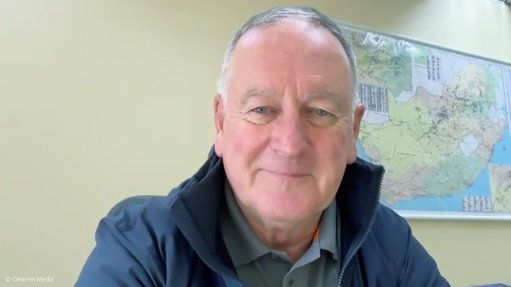Procurement poser
Few would argue that South Africa’s procurement of electricity generation capacity from independent power producers (IPPs) is one of the country’s very few public procurement success stories. But even fewer would argue that the process is facing difficulties and that changes are urgently needed.
Since 2011, South Africa’s IPP procurement has broadly met its brief: the programme has helped diversify sources of supply away from a struggling Eskom; the reverse auction methodology has facilitated the entry of utility-scale solar and wind generation at progressively lower tariffs; it has been managed by a professional IPP Office without any hint of corruption; and it has helped facilitate the creation of many IPPs, alongside financial, legal, engineering, and construction ecosystems that are arguably best in class.
The flagship renewables programme has facilitated investments of R292-billion, and the construction of over 8 000 MW across 111 wind and solar projects since 2011, and a further 21 projects with a combined capacity of more than 3 000 MW are said to be advancing towards commercial close.
True, the procurement has been less successful in ensuring transformation, but it is not true that there has been no empowerment. The rules have ensured that the projects have black and community ownership and some, albeit far too few, black-owned IPPs have also started to emerge.
It’s also true that the programme has fallen short in supporting the development of a local manufacturing ecosystem. As with so much else in South Africa, however, that has more to do with a political-economy that continues to embrace incumbency and is hostile to innovation than with the programme itself. The political-economy of the 2010s exacted a heavy toll on nascent green industries after Eskom refused to buy electricity legally procured by government. The result was a seven-year disruption to procurement that left manufacturing enterprises built on the promise of consistent demand stranded.
That said, since its resumption, the IPP procurement has struggled to find its feet for various reasons. Firstly, the poorly designed risk mitigation programme created unnecessary complexity and expense, which mostly collapsed in a time-consuming and legally fraught muddle. Secondly, there was Eskom’s tardy, at times outright obstructive, behaviour in relation to grid access rules and grid construction. Then there was the bells-and-whistles process that was unresponsive to the urgent need to add new generation.
The net result has been a divergence between aims and outcomes, with analysis by the University of Cape Town’s Power Futures Lab showing that only 7 343 MW of the 14 800 MW tendered since 2020 has been awarded and only 20% has advanced to financial close.
The question now is what should be changed and what should be retained.
There are no easy answers, but it’s clear that any reform should be transparently canvassed and continue to embrace competition. Incentives for transformation, incremental industrialisation and speed of delivery should be embedded, and any residual monopolistic grid-management instincts tamed.
Article Enquiry
Email Article
Save Article
Feedback
To advertise email advertising@creamermedia.co.za or click here
Press Office
Announcements
What's On
Subscribe to improve your user experience...
Option 1 (equivalent of R125 a month):
Receive a weekly copy of Creamer Media's Engineering News & Mining Weekly magazine
(print copy for those in South Africa and e-magazine for those outside of South Africa)
Receive daily email newsletters
Access to full search results
Access archive of magazine back copies
Access to Projects in Progress
Access to ONE Research Report of your choice in PDF format
Option 2 (equivalent of R375 a month):
All benefits from Option 1
PLUS
Access to Creamer Media's Research Channel Africa for ALL Research Reports, in PDF format, on various industrial and mining sectors
including Electricity; Water; Energy Transition; Hydrogen; Roads, Rail and Ports; Coal; Gold; Platinum; Battery Metals; etc.
Already a subscriber?
Forgotten your password?
Receive weekly copy of Creamer Media's Engineering News & Mining Weekly magazine (print copy for those in South Africa and e-magazine for those outside of South Africa)
➕
Recieve daily email newsletters
➕
Access to full search results
➕
Access archive of magazine back copies
➕
Access to Projects in Progress
➕
Access to ONE Research Report of your choice in PDF format
RESEARCH CHANNEL AFRICA
R4500 (equivalent of R375 a month)
SUBSCRIBEAll benefits from Option 1
➕
Access to Creamer Media's Research Channel Africa for ALL Research Reports on various industrial and mining sectors, in PDF format, including on:
Electricity
➕
Water
➕
Energy Transition
➕
Hydrogen
➕
Roads, Rail and Ports
➕
Coal
➕
Gold
➕
Platinum
➕
Battery Metals
➕
etc.
Receive all benefits from Option 1 or Option 2 delivered to numerous people at your company
➕
Multiple User names and Passwords for simultaneous log-ins
➕
Intranet integration access to all in your organisation





















